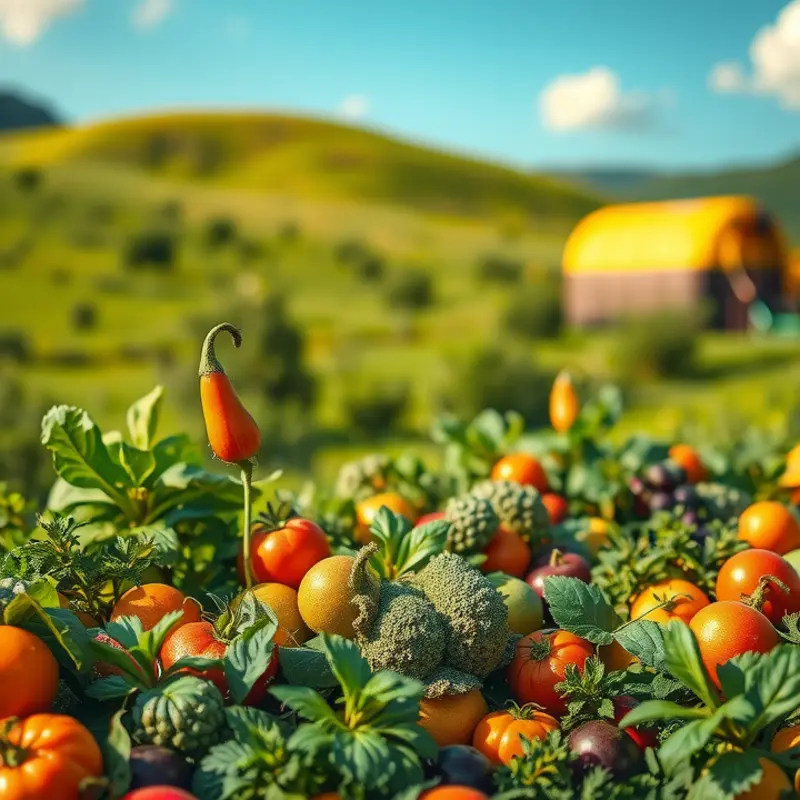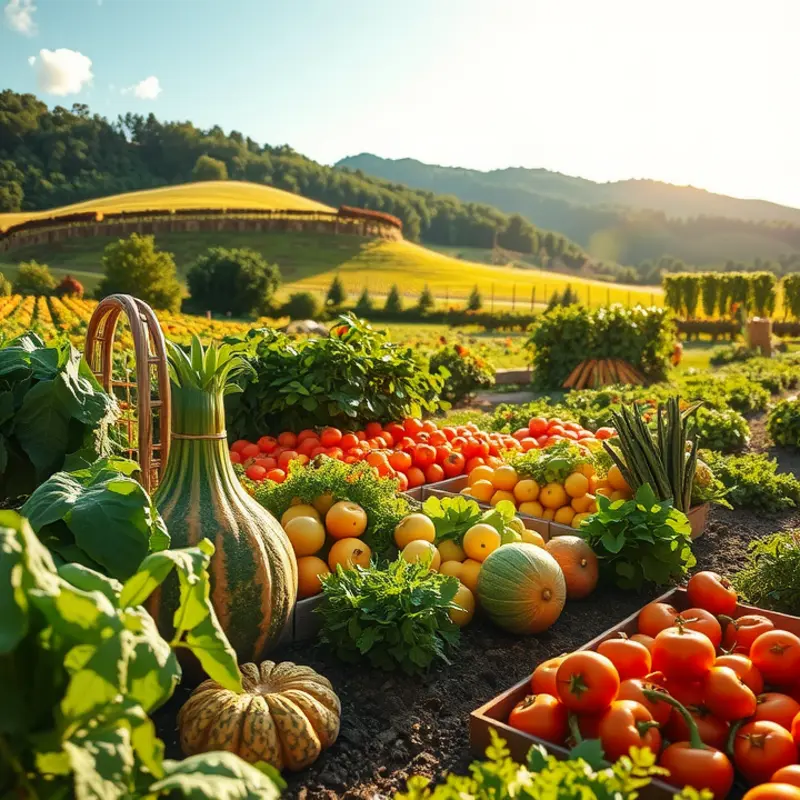Supporting pollinator health is crucial for biodiversity and our food systems. With declining populations of bees, butterflies, and other beneficial insects, adopting eco-friendly food choices becomes even more important. By understanding how our food choices impact pollinators, we can make a difference and contribute to their survival. Explore practical ways to align your eating habits with pollinator health and foster an environment where these essential creatures thrive.
Understanding the Vital Role of Pollinators

Pollinators are indispensable contributors to biodiversity and food security. They facilitate the reproduction of over 75% of leading global food crops. This intricate relationship emphasizes their role in maintaining the balance and productivity of our ecosystems.
However, many pollinator populations are in severe decline, directly impacting global biodiversity. Their reduction disrupts the intricate networks they support, such as plant-pollinator interactions crucial for diverse ecosystems. When we lose pollinator species, we risk collapsing these networks, leading to a decrease in plant varieties and the animals dependent on them.
Bees are among the most prominent pollinators, playing a pivotal role in this process. Their unique ability to transfer pollen from flower to flower enables the growth of fruits, vegetables, and nuts vital for a balanced diet. Apart from bees, other significant pollinators include butterflies, moths, birds, and bats. Each species possesses unique traits and, therefore, diverse habitat requirements. Butterflies, for example, need host plants to lay their eggs and nectar-rich flowers to feed on.
The challenges faced by these vital creatures are numerous and daunting. Modern agricultural practices often rely heavily on chemical pesticides and monocultures, both of which can be detrimental to pollinators. Pesticides can compromise their health and survival, while monocultures can lead to habitat loss because they reduce the availability of diverse food sources throughout the year.
These challenges also directly implicate our food security. Fewer pollinators mean reduced crop production and less variety in our food systems. It brings forward a compelling argument for minimizing pesticide use and fostering biodiversity in agricultural planning. Eco-friendly approaches that prioritize pollinator health are not just beneficial for the environment but critical for sustainable food supplies.
The next time you plan your meal, consider incorporating food choices that support pollinators. For instance, choosing organic produce reduces dependency on pesticides that harm these creatures. Moreover, supporting local farms practicing sustainable agriculture helps maintain diverse ecological systems, ensuring robust habitats for pollinators.
These practices are not only essential for preserving biodiversity but also align with the principles of eco-smart food choices. Further exploration on similar topics may be found in eco-friendly practices sections like those on eco-smart kitchen storage, which emphasize sustainable choices in various aspects of life.
Supporting pollinator health involves intentional, small changes in food selection and consumption practices. By prioritizing their needs, we contribute to a stable, nutritious food supply and a diverse and flourishing natural world.
Choosing Foods That Promote Pollinator Well-being

Implementing sustainable food choices can lead to thriving pollinator populations. Start by incorporating organic and locally-grown food into your diet. Organic farming practices avoid synthetic pesticides and fertilizers, which are harmful to many pollinators. When you choose organic products, you support a food system that aligns with pollinator health.
Additionally, embrace locally-grown produce. Supporting local farms reduces the carbon footprint associated with transportation and promotes biodiversity in agriculture. Diverse crop systems, such as those provided by polyculture farming, benefit pollinators by offering a variety of flowering plants for sustenance.
Favoring polyculture planting also aids in nurturing pollinator well-being. This agricultural method involves growing multiple crops together, mimicking natural ecosystems. Polyculture farming encourages a healthier soil environment and provides continuous food sources throughout the growing season. This practice not only boosts harvest resilience but also enriches habitats for pollinators.
Bring nature closer to home by promoting native plants in your garden. Native plants are adapted to local conditions and require less water, fertilizer, and pesticides. Their blooms often provide ideal nutrition for pollinators native to the area. Gardeners can create mini-refuges for pollinators by selecting a diverse array of native plants that flower over different seasons.
Avoiding pesticides is crucial in creating a safe environment for pollinators. Pesticides, especially neonicotinoids, are highly toxic to bees and other pollinators. Opt for natural pest control methods or integrated pest management practices that minimize damage.
When shopping, understand food labels to make informed choices that support sustainable practices. Look for certifications that ensure environmentally friendly farming methods were used. This encourages producers to adopt practices that are safe for pollinators.
Engage with your community by joining a community-supported agriculture (CSA) group. CSAs allow consumers to purchase shares of a farm’s harvest, providing farmers with secure income and reducing the need for harmful farming practices. Through a CSA, you directly contribute to local, sustainable agriculture.
Consider advocating for local organic farms. Your voice can impact policies and support systems benefiting both pollinators and the community. Participating in local initiatives that promote farmers’ markets and organic products can make a big difference.
These small yet significant choices contribute to a healthier environment for pollinators. Interested in learning more about sustainable practices in your kitchen? Check out our eco-smart kitchen storage ideas to further integrate eco-conscious habits in your everyday life.
Final words
Making conscious food choices has far-reaching implications for pollinator health and biodiversity. By advocating for and supporting practices that benefit pollinators, each of us can contribute to reversing the decline of these crucial species. As you explore the connections between your diet and the environment, remember that every small change counts. Embrace organic, local, and sustainable food options that not only nourish you but also protect the fragile ecosystems around us. Together, we can foster environments where pollinators thrive, ensuring a balanced and fruitful planet for generations to come.








